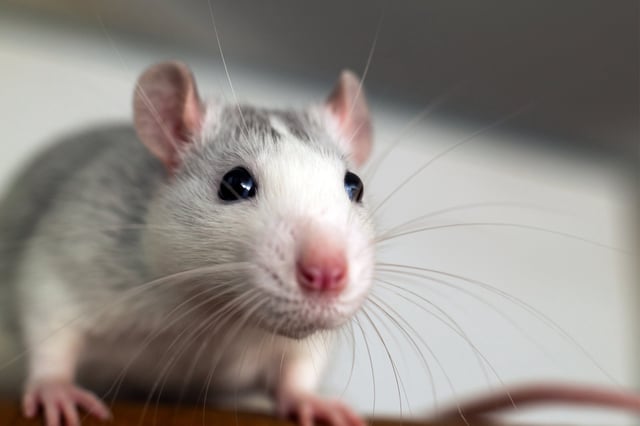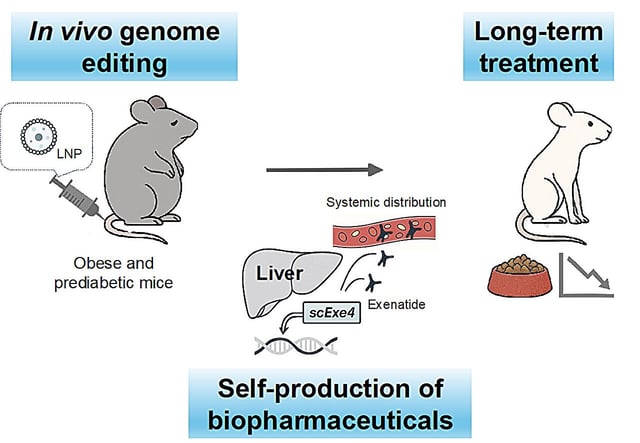Overview
- Researchers at the University of Osaka used lipid nanoparticle-delivered homology-independent targeted integration to insert a secretion-enabled Exenatide gene into the albumin locus of mouse hepatocytes.
- A single treatment produced elevated plasma Exenatide levels for more than 28 weeks.
- Edited mice consumed 29% less food and lost 34% of their body weight compared to untreated controls.
- Treated animals demonstrated improved glucose tolerance, reduced HbA1c and enhanced insulin sensitivity without detectable adverse effects.
- Genomic analyses revealed minimal off-target editing and stable liver enzyme profiles, and authors propose the one-time intervention as an alternative to regular biologic dosing for complex metabolic diseases.



